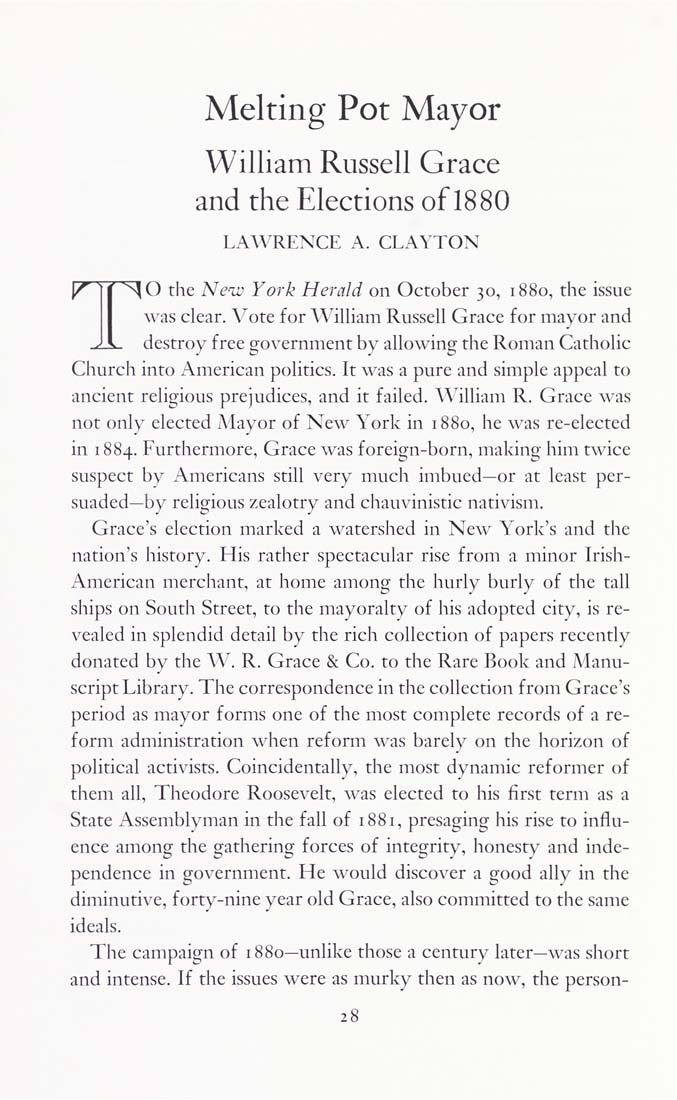Columbia Library columns (v.30(1980Nov-1981May))
(New York : Friends of the Columbia Libraries. )
|
||
|
|
|
|
| v.30,no.1(1980:Nov): Page 28 |

Melting Pot Mayor William Russell Grace and the Elections of 1880 LAWRENCE A. CLAYTON (/" ]f ^O the Neiv York Herald on October 30, 1880, the issue I was clear. Vote for William Russell Grace for mayor and )K destroy free government by allowing the Roman Catholic Church into American politics. It \x'as a pure and simple appeal to ancient religious prejudices, and it failed. \A'illiam R. Grace was not only elected Mayor of New York in 1880, he was re-elected in 1884. Furthermore, Grace was foreign-born, making him twice suspect by Americans still very much imbued—or at least per¬ suaded—by religious zealotry and chauvinistic nativism. Grace's election marked a watershed in New York's and the nation's history. His rather spectacular rise from a minor Irish- American merchant, at home among the burly burly of the tall ships on South Street, to the mayoralty of his adopted city, is re¬ vealed in splendid detail by the rich collection of papers recently donated by the W. R. Grace & Co. to the Rare Book and .Manu¬ script Library. The correspondence in the collection from Grace's period as mayor forms one of the most complete records of a re¬ form administration when reform \\-as barely on the horizon of political activists. Coincidentally, the most dynamic reformer of them all, Theodore Rooseveir, was elected to his first term as a State Assemblyman in the fall of 1881, presaging his rise to influ¬ ence among the gathering forces of integrity, honesty and inde¬ pendence in government. He would discover a good ally in the diminutive, forty-nine year old Grace, also committed to the same ideals. The campaign of 1880—unlike those a century latet-was sliort and intense. If the issues were as murky then as now, the person- |
| v.30,no.1(1980:Nov): Page 28 |







